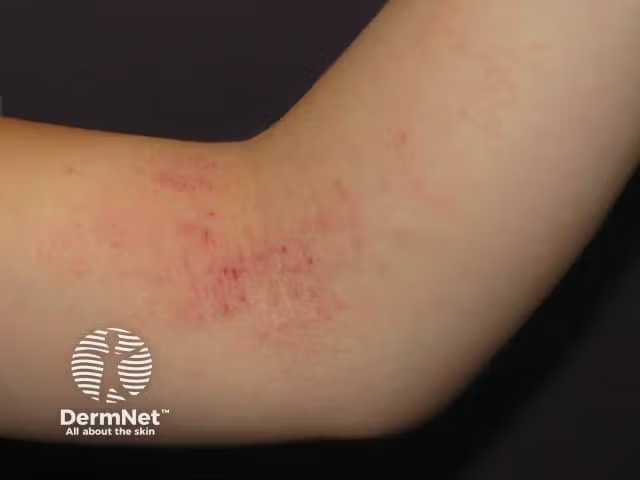- Case-Based Roundtable
- General Dermatology
- Eczema
- Chronic Hand Eczema
- Alopecia
- Aesthetics
- Vitiligo
- COVID-19
- Actinic Keratosis
- Precision Medicine and Biologics
- Rare Disease
- Wound Care
- Rosacea
- Psoriasis
- Psoriatic Arthritis
- Atopic Dermatitis
- Melasma
- NP and PA
- Skin Cancer
- Hidradenitis Suppurativa
- Drug Watch
- Pigmentary Disorders
- Acne
- Pediatric Dermatology
- Practice Management
- Prurigo Nodularis
- Buy-and-Bill
Video
Time to Treatment Response in AD Treatment Selection
Author(s):
Experts in dermatology comment on how often quickness of response to therapy determines treatment selection for teenaged patients with AD.
Jonathan I. Silverberg, MD, PhD, MPH: If you had to say, in what percentage of your patients do you feel speed becomes the determining factor in the practice setting?
Brad Glick, DO, MPH, FAOCD: With atopic dermatitis, even compared with psoriasis, it’s crucially important. These patients are super itchy, and they can’t sleep at night. The faster the better. That’s my approach, and that’s 1 reason why I like the Janus kinase inhibitors. We haven’t talked about this, but the topical agent that has been put into our toolbox is also quite effective. When we’re talking about this, we’re able to cover that mild-to-moderate sphere by having a topical and then 2 new oral JAKs.
Elizabeth Swanson, MD: In my patient population, treating kids and teens, they’re always going to place the first primary emphasis on safety. They’re a little more likely to choose dupilumab over an oral JAK. They care more about safety than rapid onset. As you get older, your priorities change.
Andrew Blauvelt, MD, MBA: That hasn’t been my experience.
Elizabeth Swanson, MD: Really?
Andrew Blauvelt, MD, MBA: Yes. Fifty-fifty holds true for my teenager studies as well. It’s not so much shot vs pill. So much happens in a month in the life of a teenager and what they’re doing now vs 3 months from now: new boyfriends, new sports, new things in school. The speed is particularly important in teens because of so many life-changing things happening in a teenager’s life. I’ve seen transformations with all teenagers in the trial with these drugs, in terms of social life, school performance, and participation in sports. One of my patients had a hard time playing soccer because he would get so bad from being on the grass of a soccer field. He’s a soccer star now, but he was a teen patient. His life changed a lot after dupilumab.
Elizabeth Swanson, MD: You’re right. There’s the whole goal of getting ready for prom. Have them get ready for prom, football season, or whatever. You’re right—for the teens definitely.
Jonathan I. Silverberg, MD, PhD, MPH: One of the scenarios that comes up a lot across all age groups is wedding scenarios. We’ll have the bride-to-be coming in 2 weeks before her wedding saying, “I can’t look like this for my wedding.” My first reaction is that you planned this wedding for 2 years. You couldn’t come in sooner? It happens. When you need that speed, there’s a subset of patients on dupilumab and tralokinumab who can get that rapid response, but you can’t predict that easily.
Transcript edited for clarity






